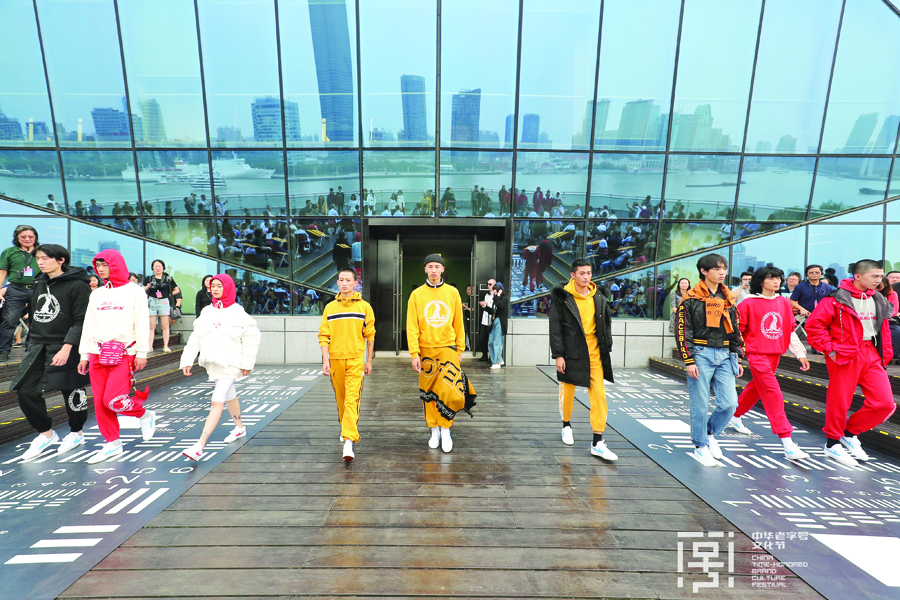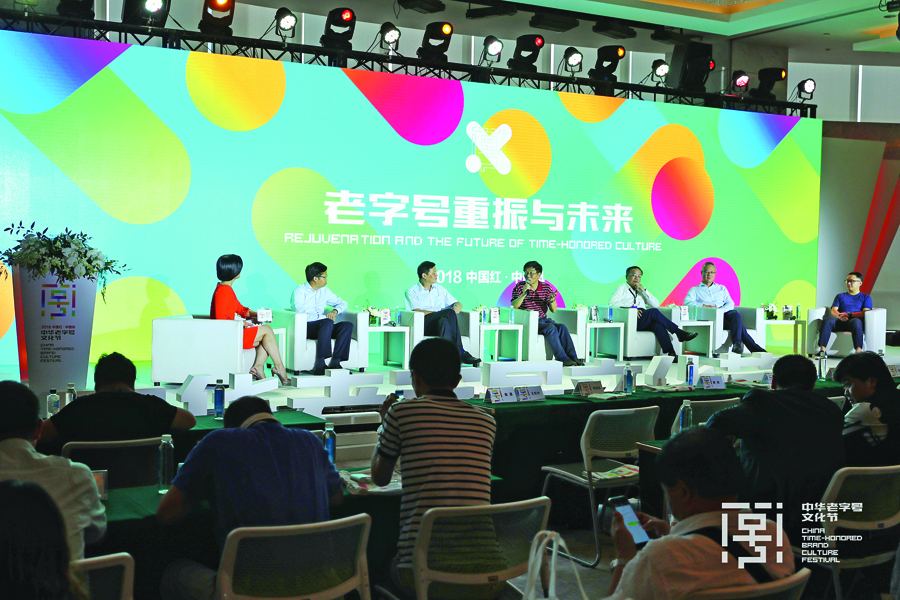
From the People’s Daily app.
This is Story in the Story.
The concept of “time-honored brands,” or laozihao in Chinese, was first proposed at the beginning of the 1990s by China's Ministry of Commerce.
There is no clear definition as to how historical a brand should be in order to be named “time-honored.” Yet, the ministry said all time-honored brands or the products should carry a distinguished Chinese heritage or cultural traditions.
But tradition doesn't always equal success. It is estimated that only 10 percent of the nation's thousands of time-honored brands have managed to yield a consistent profit.
"The English translation of the category is not precisely accurate. The long history or time of these brands can both be an honor and a burden," said Yu Mingyang, a professor at Shanghai Jiaotong University who focuses on the study of brand management.
Having followed the development of dozens of time-honored brands for more than a decade, Yu said most of these brands are nothing more than “an empty shell” of their former image.
Yu said examples like Butterfly sewing machines and Wastons electric fans still ring a bell for Chinese people born before the 1990s - but they are failing in the business world and in people’s memories.
Yu said that it's less about what the brand originally sold, but how the brand connects with today's world while maintaining its identity.
Today's Story in the Story will look at how China and companies are trying to rejuvenate time-honored brands by connecting them with today's world.

Models demonstrate new fashion designs at a show-a collaboration between Chinese fashion brand Peacebird and Phoenix, one of the country's oldest bicycle brands-in Shanghai's financial hub Lujiazui, on Sep 6. (Photo: China Daily)
The fashion show that took place atop the roof of a building in Shanghai's financial hub Lujiazui was a feast for the eyes and ears: featuring male and female models gracing the runway set against the skyline of the century-old Bund and Huangpu River.
Beyond the atmospherics, what really attracts hundreds of guests to the scene is the collaboration between Chinese fashion brand Peacebird and Phoenix, one of the country's oldest bicycle brands, dating back to 1897.
A collection of 70 or so street-style pieces were displayed at the show, but there were no bicycles in sight - not even as a prop. It's the bicycle brand's colorful "birdy" logo that appears on every piece of the collection in various ways.
“We would like to call it (the show) ‘a reborn phoenix rising from the fire,’” Wang Chaoyang, CEO of Phoenix Bicycle, said.
The bicycle company's latest financial report showed that in 2017, it raked in 1.43 billion yuan ($208 million) in sales, up by 127 percent year-on-year. However, as nearly half of its sales came from low-end manufacturing for bike-sharing company Ofo, its profit actually suffered a 4.3 percent drop.
Having expanded its offerings to baby carts, mountain bikes, and wheelchairs, Wang believed Phoenix's popularity in the 1980s could be resumed once young people find it relevant and cool again.
Fang Tao, founder and CEO of Chinese fashion agency Suntchi, said he hopes that Phoenix follows the path of Hermes- a company that morphed from a saddle maker into a luxury brand over 180 years of business.

A forum is held in Shanghai on Sept 6 to explore ways to rejuvenate the nation's time-honored brands. (Photo: China Daily)
Founded in 2008 in Shanghai, Suntchi is an agency that offers services such as brand management and intellectual property authorization for fashion companies and designers.
Last year, the agency announced a five-year alliance with The Council of Fashion Designers of America, which offers exclusive access to the council's more than 200 designers.
While some are focusing on big splashes to rejuvenate their brand, other time-honored brands are taking a modern approach to business by forging a path on the internet.
More than 100 traditional brands in China have joined hands to promote online sales, with assistance from Chinese e-commerce company JD.com.
The time-honored brands come from 13 provincial regions and have established a sales alliance at JD.com. Featuring mainly the catering sector, the alliance is aimed at empowering the brands and expanding their market both online and offline.
More than 60 percent of the time-honored brands in the food industry have launched online sales through the JD supermarket platform and in 2018 alone it will provide some 500 time-honored brands with an online sales platform.
Over the next three years, JD expects to have at least one time-honored brand with over one billion yuan in annual sales volume and ten with more than 100 million yuan in annual sales.
Shanghai boasts the largest number of time-honored brands in China. The city is home to 222 brands of the kind, with an average age of 100 years. Among them, 180 are of national importance.
“Everyone is talking about reviving China's time-honored brands these days. But it seems there is yet a solution to be discovered,” Fang said. “I think the key is to reconstruct the relationship between consumers, products, and shopping occasions.”
(Produced by Nancy Yan Xu, Raymond Mendoza and Lance Crayon. Music by: bensound.com. Text from China Daily and Xinhua.)


